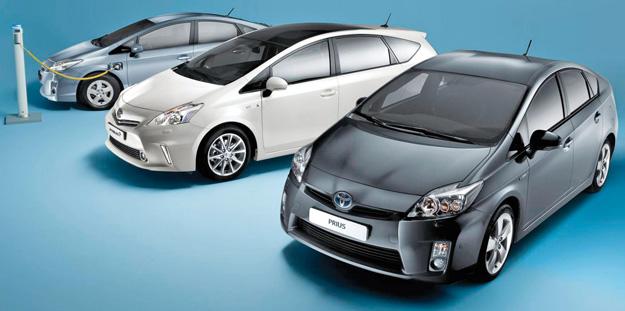
When it launched, nobody expected the Toyota Prius to occupy more than a niche status in the automotive industry. However, 15 years later and the automotive landscape has changed with the Toyota Prius going strong, etching its mainstream status by becoming the world’s best-selling car for the first three months of 2012, Bloomberg reports.
Finishing just behind the Toyota Corolla, which sold 300,800 units and the Ford Focus — which came in just behind its Japanese rival with 277,000 Focus sales – the Prius managed to finish third with a bronze medal deserving 247,230 in total global sales.
The Prius’ success comes after two years of damaging recalls and production disruptions, but followed by popular additions to the Prius family including the Prius V, C, and Prius plug-in hybrid.
According to Automotive News, the Prius C is enjoying an increasing level of popularity becoming the “car of the moment in Japan.” But the Prius C (known as the Aqua in Japanese markets) has also excelled in the U.S. Back in March a Miami Toyota dealership sought to capitalize on the diminutive hybrid’s popularity by increasing the car’s base MSRP by almost $7,000 due to increased demand.
Of course that increased demand stems largely from Toyota’s leading position in the hybrid market. According to Toyota, sales figures for the first quarter have jumped by as much as 42 percent. Automotive News writes that Prius sales could reach 250,000 units in the U.S. alone, with Toyota only allocating 220,000 models to the American market. But after production issues arose last year due to Japan’s tragic earthquake and tsunami, we imagine the Japanese automaker will likely welcome its new production woes in a welcoming light.
Since the introduction of Prius in Japan in 1997, Toyota has sold 4 million hybrid-electric vehicles worldwide, including 1.5 million in the United States. With hybrid sales continuing to grow for Toyota, it’s hard to argue against the car’s lasting appeal. As Eric Noble, president of Car Lab, an automotive consultancy firm in Orange, California stated, “It proves Prius wasn’t a fluke, that there’s a long-term market for hybrids.”
Indeed, even with the introduction of electric cars like the Nissan Leaf and plug-in hybrids like the Chevy Volt, consumers seem to be flocking more and more towards hybrids like the Toyota Prius as their preferred fuel-saving method. And as gasoline prices continue to fluctuate, especially in the US, expect that trend to continue along much to Toyota’s benefit.
Editors' Recommendations
- 2022 Toyota Tundra hybrid first drive review: New dog, old tricks
- The most reliable cars of 2021
- The best used cars under $10,000
- Fiat-Chrysler pressured dealers to take extra inventory to boost sales numbers
- Toyota partners with weather firm to use wiper blade data to predict weather


